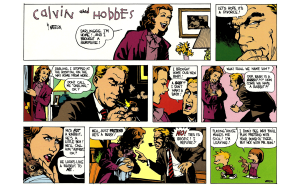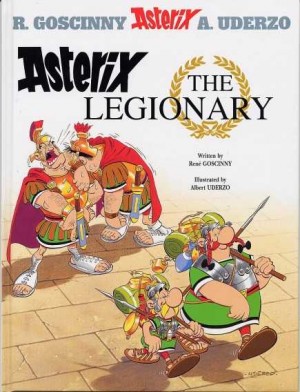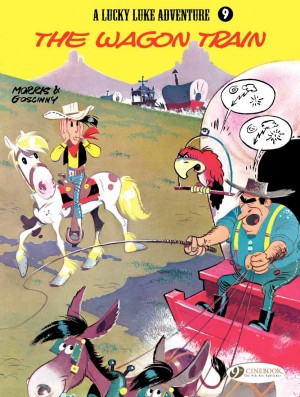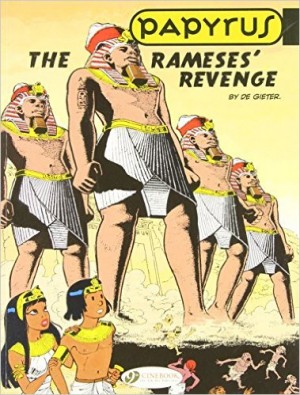Review by Woodrow Phoenix
The first three volumes collecting Bill Watterson’s Calvin and Hobbes reprinted both daily and Sunday pages in black and white. The Calvin and Hobbes Lazy Sunday Book presents just the Sunday pages, in colour. There is a special extra for this collection: the book begins with a new 10-page adventure for Calvin as Spaceman Spiff, ‘interplanetary explorer extraordinaire’. Watterson relishes the freedom of complete pages that he can lay out any way he wants, to draw lavish, giant-sized, extravagantly coloured panels of alien worlds and gloopy multi-eyed alien bugs who stand between Spaceman Spiff and freedom.
The Sunday pages are where Watterson’s interplay between characters reaches its wackiest extents, where he can use an extended sequence of panels to really explore an idea. These strips feature lots of the nonsensical conversations, transformations, abrupt switches in style and changes of viewpoint that are the result of Calvin’s incredible imagination. If you only have the black and white collections, you have the essential mechanics of the stories but you are missing a lot of the fun that Watterson’s colouring adds to emotion and other narrative elements. It’s worth reading this collection to see just how differently the strips read with colour.
Bill Watterson added an afterword to this collection explaining how he felt about the ever-shrinking spaces allotted to modern Sunday comics, compared with the glory days when a single strip could occupy an entire broadsheet page. He was very envious of those times, and not because of nostalgia. Early newspaper comics were attractive to readers precisely because they were big. So there was none of the restrictive formatting modern comics artists are forced to use, limiting what they can do. It’s a quiet summary of his feelings, clearly articulating the frustration he was feeling. Eventually this led to changes in the way Watterson created his Sunday pages. You can see how he solved the formatting problem beginning in the eighth Calvin and Hobbes volume, The Days are Just Packed.





